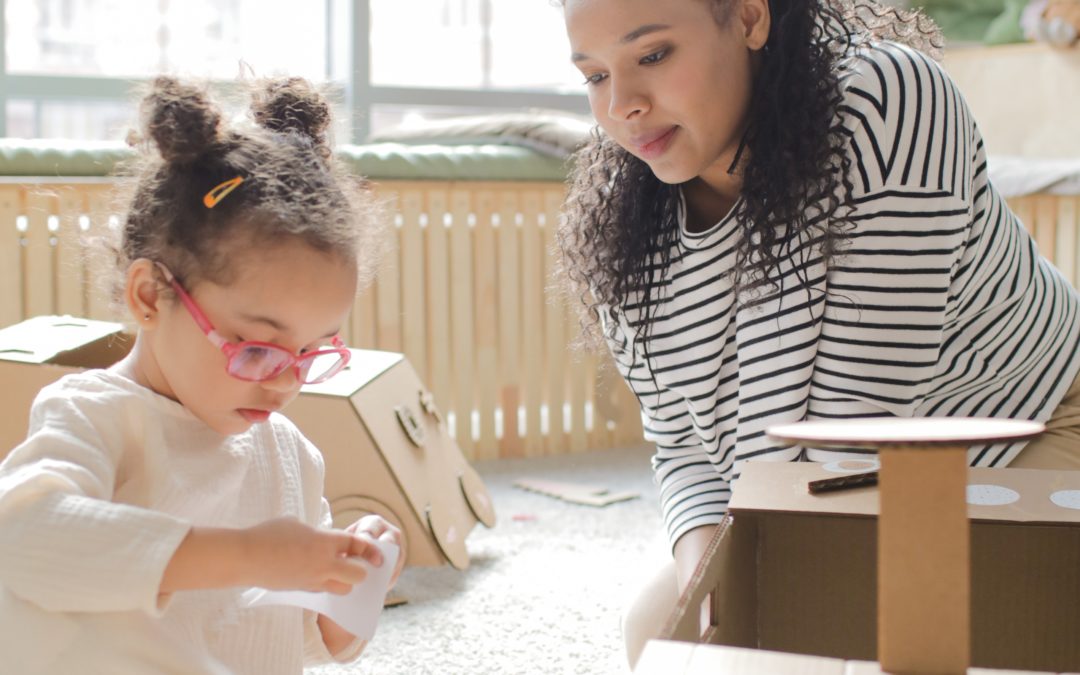Learning to Do Hard Things
Supporting children with challenges
By Emma Thomas
Watching young children struggle with challenging tasks can be really difficult! I’ve experienced this first hand watching my daughter learn to do things. As an early childhood teacher I know that persistence is an important life skill, but for a 3 year old everything takes so long!! My daughter is a strong, independent, young women who wants to do everything by herself, in her own way and in her own time. Her perseverance, grit and determination are characteristics that I want to cultivate. Sometimes these same characteristics can be so frustrating, especially when we’re trying to get out the door! As parents, how do we encourage our children to learn to engage in complex and challenging tasks? Often this is their natural desire so we just need to take a step back and let them learn.
Let them try
If your child is interested in something let them have a go! Look for moments when you aren’t under time pressure and when it will be ok if things go wrong.
If your child wants a piece of toast for breakfast, let them have a go at making it. Often my daughter will do something and my husband and I will look at each other and say “I didn’t know she could do that!”. In the early years of a child’s life they are developing at such a fast rate that each week will bring opportunities to try and master new skills.
Offer support
There is this noise my daughter makes when she is frustrated. It’s a cross between a grunt and a screech! Inside I’m thinking ‘just let me do it for you!’ but on the outside I take a deep breath and ask her:
- Would you like to ask for help?
- Do you want to keep trying?
- Or do you need a break?
Often she ignores me and continues with her task, be it pulling at a zip or squishing something into a bag, until she is successful. However, she knows I am there, trusting her to do things or get help when she needs it.
Often we want to physically intervene in a situation, either handing something to our children when they can’t reach, doing their zip up for them or turning a puzzle piece up the right way. What about if we offer the least amount of assistance possible? This can be through our reassuring presence, or by offering simple verbal prompts. Such as ‘Could you try using your step stool to reach?’ or ‘Try turning the puzzle piece around’.
Model Doing Hard Things
It is so important for our children to see us attempting difficult tasks! In these moments we can model persistence as well as what happens when we succeed or fail. It doesn’t have to be big things, little moments like opening a stuck jar, working on a puzzle or being faced with a mountainous pile of washing can all be teachable moments.
We model perseverance with our language ‘I’m doing my Wordle. It’s tricky today! I will take a break and try again later.’, or ‘this box is really heavy! I’m going to ask someone for help.’
Count Slowly to Seven and Wait
This is the patience part… Young children can be so, so slow. When my daughter is trying to get in her carseat by herself (and we’re already running late) I try and think, “What difference will 7 seconds make?” If we leave 7 seconds later will it actually make any difference? But if I interrupt my daughter every time she is trying to do a task by herself what message is that sending to her?
Children often just need a little more time to do tasks, when they are able to successfully complete things it builds their confidence to keep trying.
Break tasks down
Maybe your preschool child can’t get themselves ready to leave the house in the morning but what can they do? If they can’t get dressed by themselves can they pick their clothes out? (This may result in some amusing outfits!). My daughter struggles to get her socks on, but if I put them on for her she is able to do her shoes.
As children get a little older you can ask them to think about things they can do. If you’re making dinner ask them ‘what things can you do to help us get ready to eat?’, they might suggest clearing the table or getting out plates and cups.
Supporting our young children to do things themselves can be challenging at times! But it is well worth it to help them grow and see their pride when they accomplish tasks.


Recent Comments